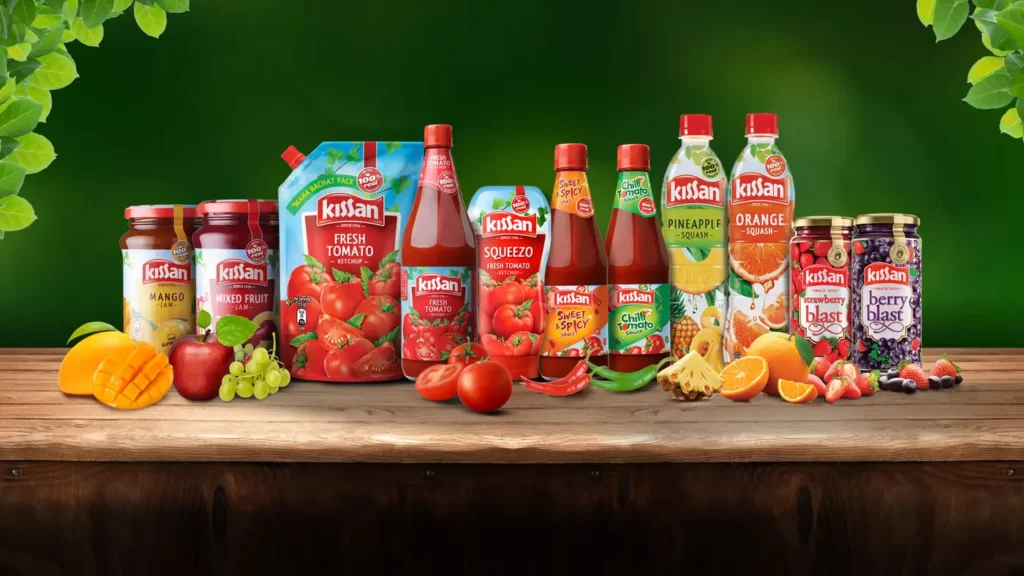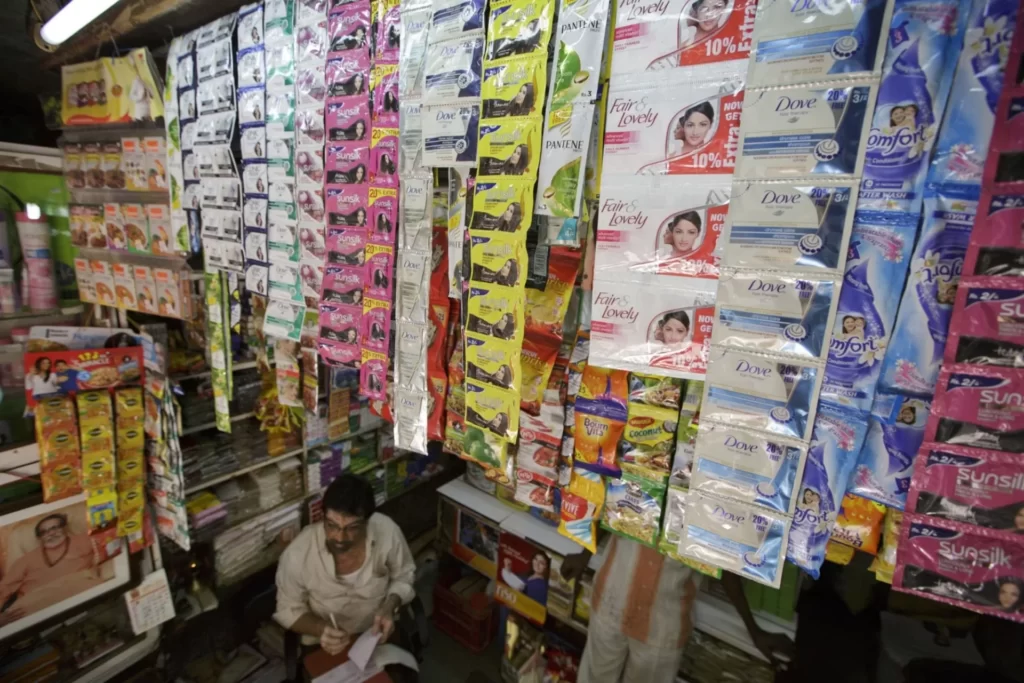Unforgotten Brands – Kissan

Kissan’s rise from pre-independence India to global icon status is a tribute to the transformative potential of creativity, perseverance, and excellence.
The United Trading Company (UTC) in Bombay was founded in the early 1930s, marking indirectly the beginning of Kissan Jam’s history in India. The business at the time dealt with the import and sale of food products from all over the globe. However, throughout the time of British colonial rule in India, there were not enough indigenous manufacturers to meet the demands of the local populace.
Mitchells
Sometime in the 1900s, at the golf course at St. Andrews, Francis J. Mitchell was informed via telegraph that he had lost his whole fortune when he was on the ninth green. He was almost 60 years old and had three kids to support when he decided to go to India in search of economic opportunity. This he eventually discovered on a 720-acre tract of property he rented from the Punjab government near Renala Khurd, in the Okara District. The first Mitchell’s Fruit Farm would be established here. When Mr. Mitchell’s first attempt at cultivating vine fruits failed, he and his sons Leonard and Richard shifted their attention to citrus trees. As luck would have it, citrus fruits thrived, and the lease was renewed in 1930, paving the way for the registration of Indian Mildura Fruit Farms Limited the following year.

Indian Mildura Fruit Farms Ltd. was founded in 1933 as a family business to turn citrus into concentrated soft drinks (squashes) and preserves. Francis Mitchell oversaw it, and his sons Leonard and Richard also served on the board of directors.
Name
Farmers in Punjab sold their newly gathered fruits to passing trains at a processing plant. The natives gave the area the name Kissan, which quickly gained fame outside of the region.
In 1935, Kissan brought jams and squashes to India, mostly for sale to British colonists. The great quality and wonderful flavour of Kissan jam caused it to swiftly acquire popularity once it was introduced to the Indian market. Kissan’s first line of goods was a selection of fruit jams and marmalades sold in individual jars to the middle class in the 1940s and 1950s. The company continued to grow during this time.
UB Acquisition
In 1947, the Mitchells set up a facility in Bangalore, India, to operate the country’s first fruit and vegetable processing facility. United Breweries (UB), formerly controlled by the late Vittal Mallya, acquired Kissan from Mitchell Bros. in 1950. The company also launched a massive advertising campaign, complete with appealing jingles and slogans.
Kissan became well-known across India in the 1960s and 1970s as a result of the company’s forward-thinking advertising and dedication to high quality. Every one of Kissan’s memorable slogans cleverly played off the company’s core value proposition: “Wherever there is fruit, there is Kissan.” This quickly became the name associated with nutritious and appetising food.
Unilever Acquisition
The corporation underwent a rebranding and operational overhaul in the 1990s. Hindustan Unilever (HUL) bought Kissan Foods in 1993. With the backing of HUL, one of India’s most successful FMCG conglomerates, Kissan Foods was able to expand its market presence. The firm was able to grow and develop thanks to the support of a multinational consumer goods corporation. They zeroed in on jam, their flagship product, and innovated the way it was packaged and flavoured. They also put money into marketing and advertising to expand their customer base. New product lines, such as mixed-fruit jam and mango jam, were introduced and quickly gained market favour. Small sachets and bottles were also created for portability and ease of usage.

New Formulas and Categories
Kissan Foods altered its formula in many key ways. Jams were made with less sugar and all-natural ingredients. Consumers concerned about their health might now enjoy Kissan Jam because of the improvements made to the product.
Kissan added tomato ketchup, fruit squash, and pickles to their lineup in the 1980s. The company also released a line of spreads, including peanut butter, chocolate, and hazelnut, that were huge hits with young consumers.
Kissan Jam regained its position as India’s preeminent jam brand at the turn of the millennium. People once again had faith in the company’s goods because of its high standards for quality and flavour. They were widely distributed and could be found in practically every shop in India.
The introduction of novel food packaging by Kissan, such as canned vegetables and beans, marked the company’s beginning as an early innovator in the food industry.
Helping Farmers
Kissan has been essential in helping subsistence farmers grow and harvest high-quality crops. As of January 2019, 76% of the tomatoes used in Kissan ketchup came from environmentally friendly farms. The Sustainable Tomato Sourcing Public-Private Partnership (PPP) Project, launched in 2012 by HUL and the Government of Maharashtra, is now fully self-sufficient.
HUL maintained its policy of guaranteeing farmers a buyback of their product. HUL is a critical partner since it educates farmers on how to grow tomatoes in a way that doesn’t harm the environment. This comprises the most up-to-date farming methods, effective methods of irrigation, and suggestions for the best seeds to use. One such method involves the use of a faster-ripening tomato variety (90 days) rather than the more common longer-season ones (150–180 days). The deeper red hue of these tomatoes helped increase farmers’ profits by increasing their marketability. In 2019, HUL sourced their Tomatoes from the harvests of over 8,000 growers throughout the nation.
The New Kissan
With a wide selection of condiments, including jams, spreads, ketchup, etc., Kissan has become one of India’s most popular FMCG brands. The company’s reach now extends to the Middle East, Canada, and the United Kingdom.
In addition to ketchup and sauces, all of their products are made using ingredients sourced from farms around India. This includes jam, peanut butter, and squash. Fruits and vegetables from all around India, including oranges from Nagpur, lemons from the Himalayas, pineapples from Kerala, grapes from Karnataka, and peanuts from Gujarat. Kissan owes its existence to the devoted Indian Kisans who created the company.
Reference
https://www.brandhuk.com/2022/11/history-of-kissan-hindustan-unilever.html
https://www.socialsamosa.com/2019/02/brandsaga-kissan-advertising-journey/
http://www.mitchells.com.pk/wp-content/uploads/2017/05/Story%20of%20Mitchell’s.pdf



